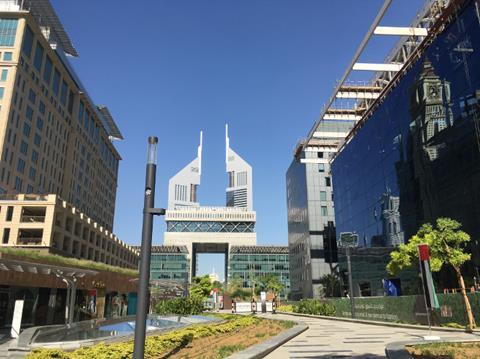On the back of the DIFC’s Talent Week, a panel of experts discussed the skills gap and how to close it
In addressing the skills gap facing the insurance industry around the world, insurers and brokers must first embrace the shift that has occurred since the global pandemic.
This is according to a panel of experts speaking on Day One of the Dubai World Insurance Congress 2023.
Chaired by Gracita Aoa-de Gracia, assistant vice president – Insurance and Reinsurance, DIFC, the line-up included Simon Price, chief executive, DIFC Insurance Association, Andy Woodward, regional head, Middle East & Turkey, Lloyd’s and Brad Boyson, co-founder, HR Learn In.
“Since COVID, people are looking to have a different work profile,” observed one speaker, noting there was a big difference between the approach within the DIFC and the onshore insurance market.
While the companies within the DIFC have embraced practice such as hybrid working, local firms are more old-fashioned in their approach. “In the DIFC we have a role in changing some of these established attitudes,” he said, revealing the Centre has set up a mentoring program to share international best practice with local markets.

Think local, act global
Despite the ease of attracting expats into regional positions – or attempting to write the business from elsewhere - local and cultural understanding of the region remains essential.
“You don’t ‘dabble’ in any market,” said one panellist. “You have to commit to the Middle East or you don’t do much at all. It’s a big challenge. People always want talent with knowledge of the region as it’s a key success factor.”
Among other things, the panel discussed how the industry can attract and retain the skills and talent it needs by inspiring rising professionals and fostering more diverse and inclusive cultures.
Rising professionals are looking for more than competitive remuneration packages. Younger generations in particular want to work with organisations that offer inclusive cultures and have strong ESG credentials.
Importance of DE&I
Diversity of skillsets is becoming more important as the industry evolves, with greater demand for chief risk, actuarial and sustainability officers among other roles.
Technology is also changing the way we work, but it is not replacing the human touch or the importance of relationships within the business, they thought.
“There’s a temptation to think that hubs like the DIFC don’t matter anymore because there’s so much technology – it’s a commodity allowing us to communicate and connect,” said one expert. “But personal networks are becoming even more important because they are now our differentiator.”
Speaking on International Women’s Day, the panellists acknowledged there is still a lack of gender diversity within the sector, an issue that is not unique to local markets, or even the insurance industry.
While some sectors, such as HR, have a larger ratio of women to men, this drops off the higher up you go in the organisation. It is a complex issue that will require progressive attitudes from employers around flexible working, returner programs and paternal leave if it is to improve.
“The shortage of female talent is infuriating,” said one panellist. “Certain jobs are still seen as being ‘male’ and that’s not just a cultural thing [within the GCC], it’s an industry thing.
“In the London and Lloyd’s market I know of just two CUOs who are women. The talent is there, it just needs to be developed.”










No comments yet